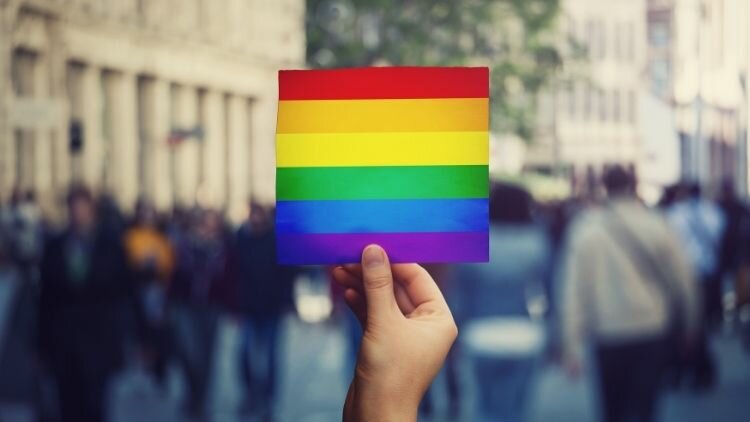In 2019 Projekt: Polska with support of the Prague Office of the Friedrich Naumann Foundation for Freedom initiated a project called “Ed Net. Education for Human Rights and Diversity”. The project idea grew from hostile sentiment of populist Central European governments towards anti-discriminatory, anti-hate speech and sexual education and total lack of such education in other Eastern European countries.
For many illiberal and conservative governments, anti-discriminatory, anti-hate speech and sexual education is seen as an ideological enemy since it promotes free and critical thinking, and enables free and fact-based decision taking. Instead, such governments favor education based on conservative, often Catholic values and replace knowledge with ideologization.
In countries like Poland, anti-discriminatory, anti-hate speech and sexual education has been removed from school curricula and sexual education has often been misrepresented as a threat to children. Sex educators were even threatened with prison sentences by ruling MPs.
When Projekt: Polska created the EdNet project, it saw as crucial to build a network of educators and activists from all over Central and Eastern Europe to be able to compare experiences, learn from one another, share best (and worst) practices, and organize common projects and responses to these anti-liberal developments.
In 2021, in order to expand the network, a group of Polish EdNet experts arranged two study visits to the EU neighboring countries, namely Albania, North Macedonia and Moldova.
The visit to Albania and North Macedonia was inspiring and gave some hope. Both these Western Balkan countries have European aspirations and want to join the EU as soon as possible. Therefore the governments in Tirana and Skopje adopt legislation that supports minorities, including the LGBT+ community, take some actions to fight hate speech and discrimination.
The result of this work can be seen, among others, in the result of the Rainbow Europe index. In its 2021 edition, North Macedonia scored 27% and Albania 33%. It is far from the regional champion, Montenegro, whose 63% places it among countries like Sweden or the Netherlands, but at the same time the score is much better than in Poland (13%), the EU’s worst performer.
Of course, this ranking cannot be taken as the sole indicator of the level of LGBT+ rights. It only shows what legislation has been promulgated. However, its implementation is a different story. This has been stressed many times by members of civil society and various advocacy groups in both these countries.
Arber Kodra, one of the leaders of the LGBT+ community in Albania, president of Open Mind Spectrum Albania (OMSA), explained us the meaning of the 2010 Anti-Discrimination Law.
“The legislation puts in place a solid legal foundation guaranteeing the rights to equality and non-discrimination. But we must observe how it will be implemented by the state authorities”, he commented.
It is interesting that similar words could have been heard from North Macedonian Justice Minister Bojan Maricikj. He explained why the new hate speech laws look good on paper but cannot be properly executed in his country. According to him, one of the main reasons for that is a lack of understanding of the problem by law-enforcement authorities.
The situation is quite different in Moldova. Unlike Albania and North Macedonia, for Moldova the European integration has not been the main ambition and common goal that unites the society. Contrarily, the people here are deeply divided with a significant part of the population looking with a great interest in the direction of the Russia-led Eurasian Economic Union. Consequently, the European Union cannot promote its values as effectively as in the case of Western Balkans.
One important segment of the Moldovan political elite keeps on labelling LGBT+ community as a danger for traditional families and national identity, and actively fights any form of promotion of diversity. For example, former president Igor Dodon sought to galvanize conservative public opinion and in 2017 opposed an LGBT+ solidarity march – “I am not the president of the gays”, he said – that was eventually interrupted by conservative groups and church activists.
Minorities in Moldova are thus looking forward to the changes that the impressive victory (July 11, 2021) of pro-Western Action and Solidarity party, PAS, may bring (PAS won 53% of the votes). Even though the topic of minorities’ rights was mostly absent in the campaign, there are hopes that the new government together with President Maia Sandu will break with the rhetoric known from the pro-Russian groupings and their allies from the powerful church.
Written by:
Michal Tecza is a sex educator, anti-discrimination trainer, partyworker and streetworker. Member of LGBT organization Lambda Warszawa. Specialized in psychological aid for LGBT people, people with disabilities and sex workers. Coordinator at the Projekt: Polska’s HejtStop campaign.
The article was originally published at: https://www.freiheit.org/central-europe-and-baltic-states/diversity-and-lgbt-rights-albania-north-macedonia-and-moldova
Continue exploring:
Going Backwards: Hungary’s Alarming Narrative on LGBTQ Rights



